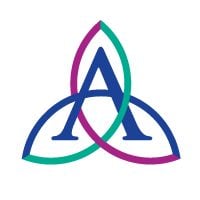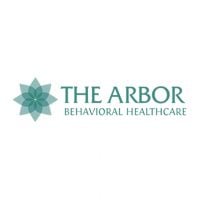Center For Discovery
Drug Rehab Center in Austin, Texas
- Opioid Addiction
- Mental Health
- Eating Disorder
Center For Discovery in Austin, Texas, is an accredited treatment facility providing comprehensive care for individuals with eating disorders, addiction, mental health disorders, and substance abuse through various levels of care and evidence-based treatment services.
About Center For Discovery in Texas
Center for Discovery, located in Austin, Texas, is a rehab facility that offers dedicated programs for adolescents, children, and adults struggling with addiction. With a serene campus setting and a capacity for 30 residents, this facility provides a supportive environment for individuals seeking recovery.
• Residents are separated into houses based on age and gender, fostering a sense of community and peer support.
• The facility utilizes cognitive and dialectical behavioral therapy, along with nutritional education, yoga, and positive coping mechanisms to promote holistic healing.
• Clients attend five to six hours of treatment per day, ensuring a comprehensive approach to recovery.
Center for Discovery is accredited by JCAHO, demonstrating their commitment to providing high-quality care. They offer a range of treatment options, including residential, partial hospitalization (PHP), and intensive outpatient (IOP) programs, allowing clients to receive the level of support that best suits their needs.
This facility specializes in treating a variety of addictions and co-occurring disorders, such as substance abuse, alcoholism, eating disorders, and mental health issues. By employing evidence-based therapies, including individual counseling, group therapy, and family therapy, Center for Discovery aims to equip clients with the tools necessary for lasting recovery.
Genders
Ages
Modality
Additional
Accreditations

JCAHO
Conditions and Issues Treated
With so many people addicted to opioids, we need to help those who want to quit. The cycle begins when opioid addicts take opioids for a painful injury. When someone starts taking their medication differently or in excess, it means they’re addicted and at risk of overdosing.
In , detoxing from these types of treatments is the most effective way to beat this. Most facilities begin with medical assistance and then provide counseling services; rehabilitation follows after successful treatment.
Levels of Care Offered
This center offers a variety of custom treatment tailored to individual recovery. Currently available are Intensive Outpatient, Outpatient, Partial-Hospitalization, with additional therapies available as listed below.
An intensive outpatient program (IOP) is effective for drug rehab, but it can take six months to several years to complete. It’s the most popular type of drug rehab program in the United States. One example of a successful IOP success story is actor and comedian Chris Rock, sober since 1990.
An IOP allows participants to spend nights at home while attending meetings throughout the day. It’s a good way for drug addicts to make a recovery plan in an outpatient setting while still supporting their loved ones.
Alcohol or drug addiction, or co-occurring disorders, are treated in an outpatient program. The patient must attend therapy and other programs at the facility but can return home each night.
Outpatient treatment allows recovering addicts to live at home while receiving addiction treatment. Outpatients can attend group sessions for a few hours per week. Outpatients may also continue to work full time and study/attend school without interruption if they choose.
A popular way of getting drug treatment is through a Partial Hospitalization Program. These programs are short and intensive, allowing for more freedom in family visits. Patients can check in with the program anywhere from 18 to 30 hours per week but only sleep at home at night. The program may last anywhere from one to six months.
Therapies & Programs
Trauma therapy is a form of therapy used to help people process and understand past traumas. This can help struggling addicts, as many people turn to drugs or alcohol to mask the pain of their past. Trauma therapy can be done in several ways, such as through visualization, discussion, and writing down thoughts and feelings. The goal is to help the individual understand why they are having problems coping with certain situations and changing how they think and react to things. This is often done in tandem with other therapies to treat the underlying issues associated with addiction.
The idea behind trauma therapy is that while some people can experience traumatic events and not have lasting psychiatric symptoms, many others will. In these cases, memories get hidden from consciousness but continue to influence how the person processes and copes with things in their life. They may avoid situations that resemble what happened or become suddenly angry or irritated to a situation that reminds them of a past event. With the help of a therapist, people can go back over memories and experiences. This helps them understand why they are having problems coping with certain situations and changing how they think and react to things.
This type of cognitive-behavioral therapy helps people understand how their thoughts, behaviors, and feelings are interconnected. It can help patients with borderline personality disorder gain control over their actions and stop self-harming thoughts and attempts.
Cognitive Behavioral Therapy is a type of psychotherapy that helps people address the thoughts and behaviors that may have led to their addiction. It also helps change negative thoughts into positive ones and promotes healthy communication between addicts and those around them. CBT is an efficient treatment for individuals suffering from all sorts of addictions.
Cognitive Behavioral Therapy (CBT) focuses on the underlying thoughts and behaviors that caused the problem of addiction in the first place and may cause a relapse. Negative feelings are common in drug abuse disorders, but they can lead to co-occurring disorders if not recognized. CBT involves strategies that help to change the behavior pattern by restructuring negative thoughts into positive ones. It helps to remove these feelings, and it provides long-term benefits. Also, CBT promotes self-awareness, self-control and can be administered as a mono-therapy or as part of combination therapy.
Eye Movement Desensitization and Reprocessing (EMDR) is a treatment modality used with patients suffering from post-traumatic stress disorder (PTSD) or drug and alcohol cravings. EMDR is considered to be a form of cognitive-behavioral therapy (CBT) and exposure therapy. It is believed to help patients reprocess their memories, thoughts, and emotions to heal from the trauma of their experience.
Payment Options Accepted
For specific insurance or payment methods please contact us.
Is your insurance accepted?
Ask an expert, call (888) 674-0062
Additional Details
Specifics, location, and helpful extra information.
Austin, Texas 78703 Phone Number(512) 524-6895 Meta DetailsUpdated April 15, 2024
Staff Verified
Center For Discovery Patient Reviews
There are no reviews yet. Be the first one to write one.
Austin, Texas Addiction Information
Texas is one of the primary hubs for drug smuggling into the country. The border between Texas and Mexico is more than 1,000 miles long. More than 10 million residents use alcohol every year and more than 25% of those are minors. Alcohol and drug use has become so common in Texas that almost 15% of all deaths can be attributed to these substances.
Austin, Texas, has a drug addiction problem that is sadly serious. According to recent statistics, half of the state's overdose deaths occurred in the city of Austin. This means that, on average, there are about 2.5 drug overdose deaths in Austin each day. There are also many sober support groups in Austin to help you stay on track and focus on your recovery goals.
Treatment in Nearby Cities
- Clarendon, TX (370.2 mi.)
- Hubbard, TX (123.0 mi.)
- Kingsville, TX (191.0 mi.)
- Plano, TX (199.9 mi.)
- Orange, TX (241.2 mi.)
Centers near Center For Discovery




The facility name, logo and brand are the property and registered trademarks of Center For Discovery, and are being used for identification and informational purposes only. Use of these names, logos and brands shall not imply endorsement. RehabNow.org is not affiliated with or sponsored by Center For Discovery.





